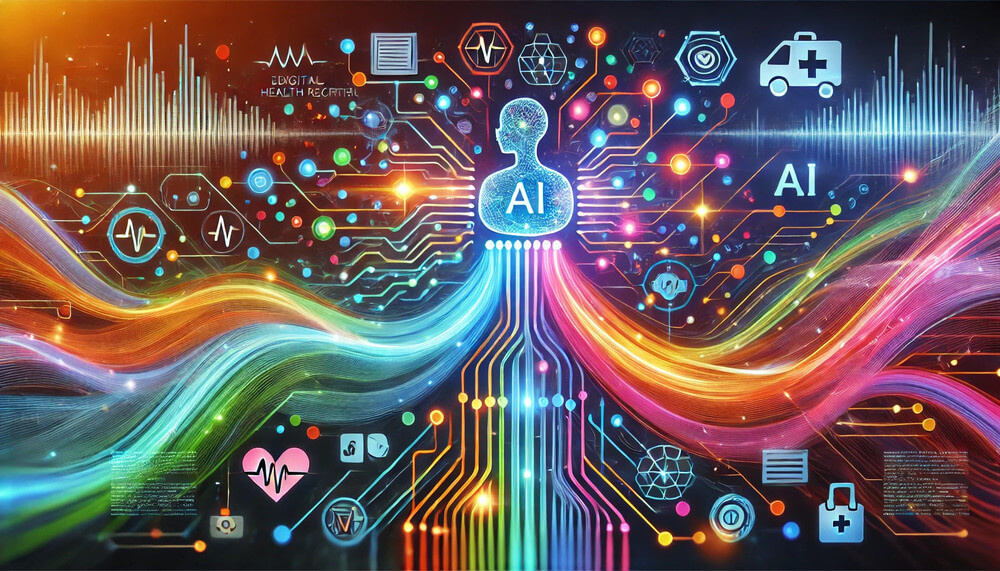Epic Systems, a leading force in health IT, has unveiled a suite of cutting-edge artificial intelligence (AI) features designed to revolutionize electronic health records (EHR). Announced at the company’s User Group Meeting (UGM) in Verona, Wisconsin, these advancements aim to alleviate the documentation burden on clinicians, streamline charting and coding processes, and provide real-time, evidence-based medical insights to healthcare professionals.
Advancements to Streamline Healthcare
During the UGM event, Epic executives highlighted the integration of AI technologies into their EHR software as a pivotal step toward improving healthcare delivery. CEO Judy Faulkner emphasized that the primary goal is to reduce the administrative load on clinicians, a significant factor contributing to burnout in the medical profession. The AI-powered tools are designed to assist clinicians in managing patient records more efficiently, allowing them to focus more on patient care rather than paperwork.
Among the new features is the MyChart in-basket augmented response technology (ART), which automates responses to patient messages. Already implemented in 150 healthcare systems and medical groups, ART is generating approximately 1 million draft responses each month. This technology saves clinicians about 30 seconds per message, a time-saving measure that could add up significantly over time. Faulkner noted that ART’s automated responses are not only efficient but also often perceived as more empathetic by patients compared to those written by overworked doctors.
Additionally, Epic has introduced an AI tool combined with ambient voice technology to assist clinicians in charting progress notes during and after patient examinations. This feature, now operational in 186 organizations, further demonstrates Epic’s commitment to leveraging AI to ease the documentation process.
The Broader Context: Addressing Burnout and Staffing Shortages

The introduction of these AI tools comes at a critical time for the healthcare industry. With studies indicating that 40% to 60% of clinicians experience burnout, there is a growing need for solutions that can reduce administrative burdens and enhance job satisfaction. Epic’s AI-driven features could play a crucial role in addressing these challenges by automating time-consuming tasks and allowing healthcare providers to focus on patient care.
Epic’s collaboration with Microsoft, announced at the HIMSS conference in April 2023, underscores the company’s dedication to integrating large language models and AI into its EHR software. This partnership is expected to further enhance the capabilities of Epic’s tools, offering even more robust solutions to the ongoing issues of clinician burnout and staffing shortages.
Evaluating the Impact of AI in Healthcare
From my perspective, Epic’s push to incorporate AI into healthcare is a significant step forward. These tools have the potential to greatly improve efficiency and reduce the stress associated with administrative tasks. However, it’s important to approach these innovations with a balanced view. While AI can undoubtedly streamline processes and provide valuable insights, there is a risk of over-reliance on technology. It’s crucial that these tools support, rather than replace, the human element in healthcare.
Patients’ initial positive response to ART’s empathetic tone is promising, yet it raises questions about the future role of clinicians in patient communication. As I see it, AI should augment human interactions, not diminish them. Ensuring that healthcare remains a personal and compassionate experience must remain a priority as these technologies evolve.
Moreover, the integration of AI into healthcare systems also brings up concerns about data privacy and security. As AI tools become more sophisticated and capable of processing vast amounts of patient data, safeguarding this information will be paramount. Epic, along with its partners like Microsoft, must continue to prioritize data protection to maintain trust and compliance within the healthcare industry.
Conclusion
Epic’s latest advancements in AI-driven EHR tools mark a promising development in the healthcare sector. By reducing the documentation burden on clinicians and providing more empathetic communication with patients, these technologies have the potential to significantly enhance the quality of care. However, as the industry moves forward with AI, it’s essential to balance technological innovation with the need to maintain the human touch in healthcare. The success of these tools will ultimately depend on their ability to support clinicians in delivering compassionate, patient-centered care while safeguarding the privacy and security of patient data.






